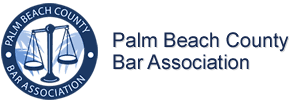
Andrew Rochen Rated 2020 Top Lawyer By Super Lawyers, Florida Trend & SFLG
Andrew Rochen Rated 2020 Top Lawyer By Super Lawyers, Florida Trend & SFLG


Andrew Rochen Rated 2020 Top Lawyer By Super Lawyers, Florida Trend & SFLG

Mandatory Changes to Florida Notary Laws For those of you who are unaware, on January 1, 2020 Florida’s new Remote Online Notarization Law came into

For those interested, the Palm Beach County Bar Association recently released its 2019 Judicial Evaluation Results, which provides some useful information regarding the Palm Beach County Judiciary.

This past Wednesday, Florida Governor, Ron DeSantis, announced that he will be signing new legislation into law focused on curbing what insurance carriers refer to as an epidemic of abusive litigation by repair contractors seeking compensation under property policies.